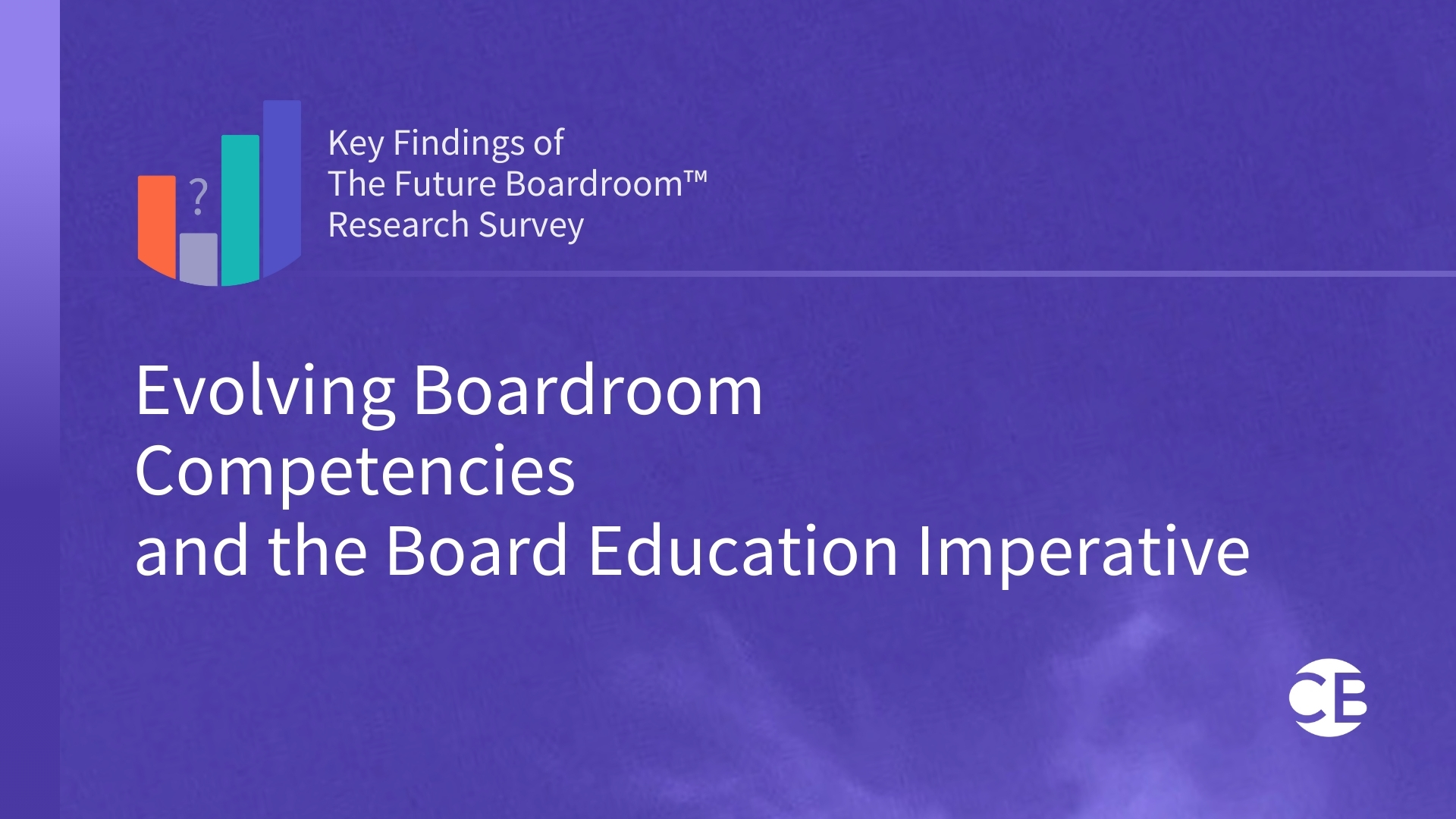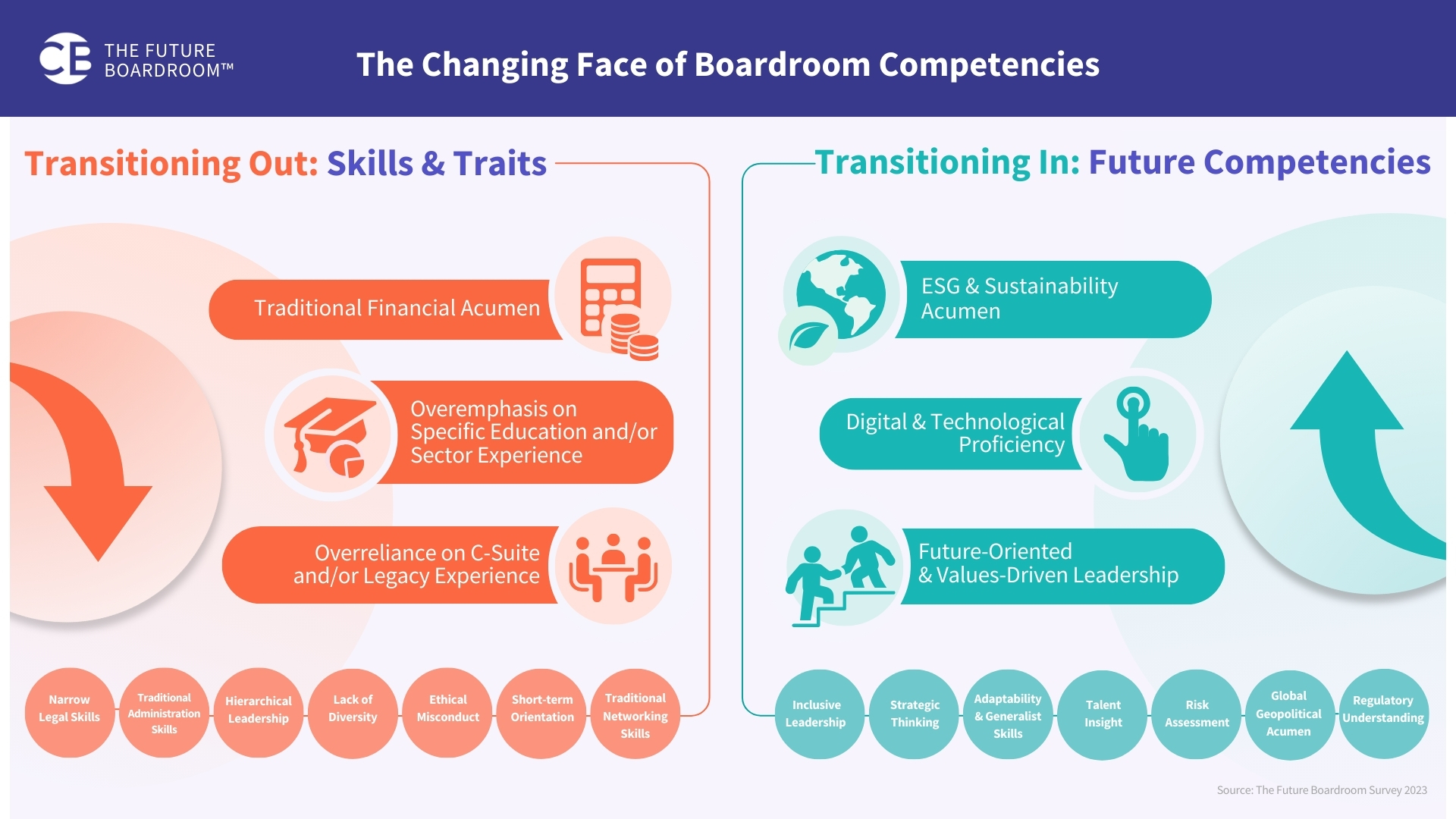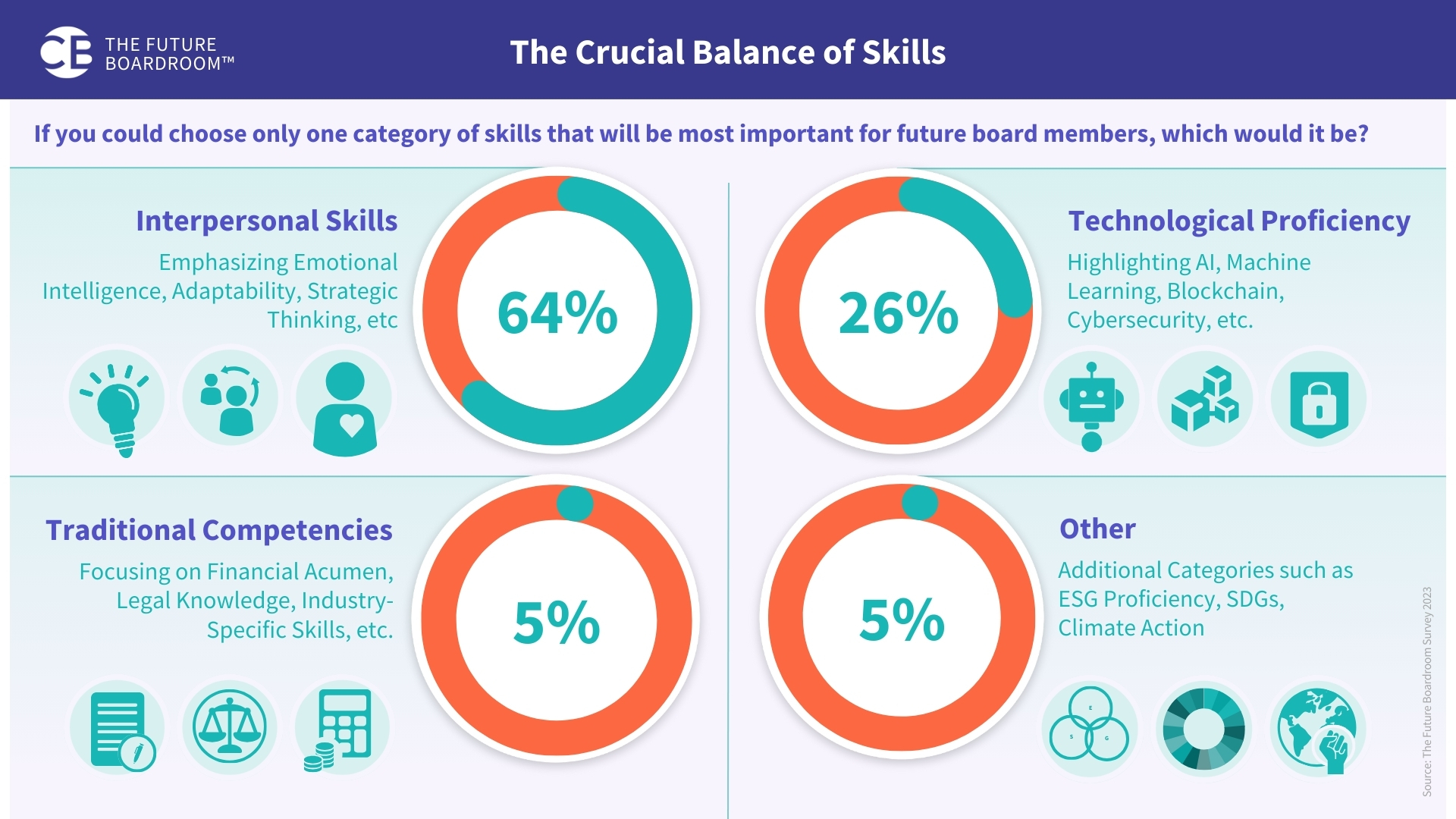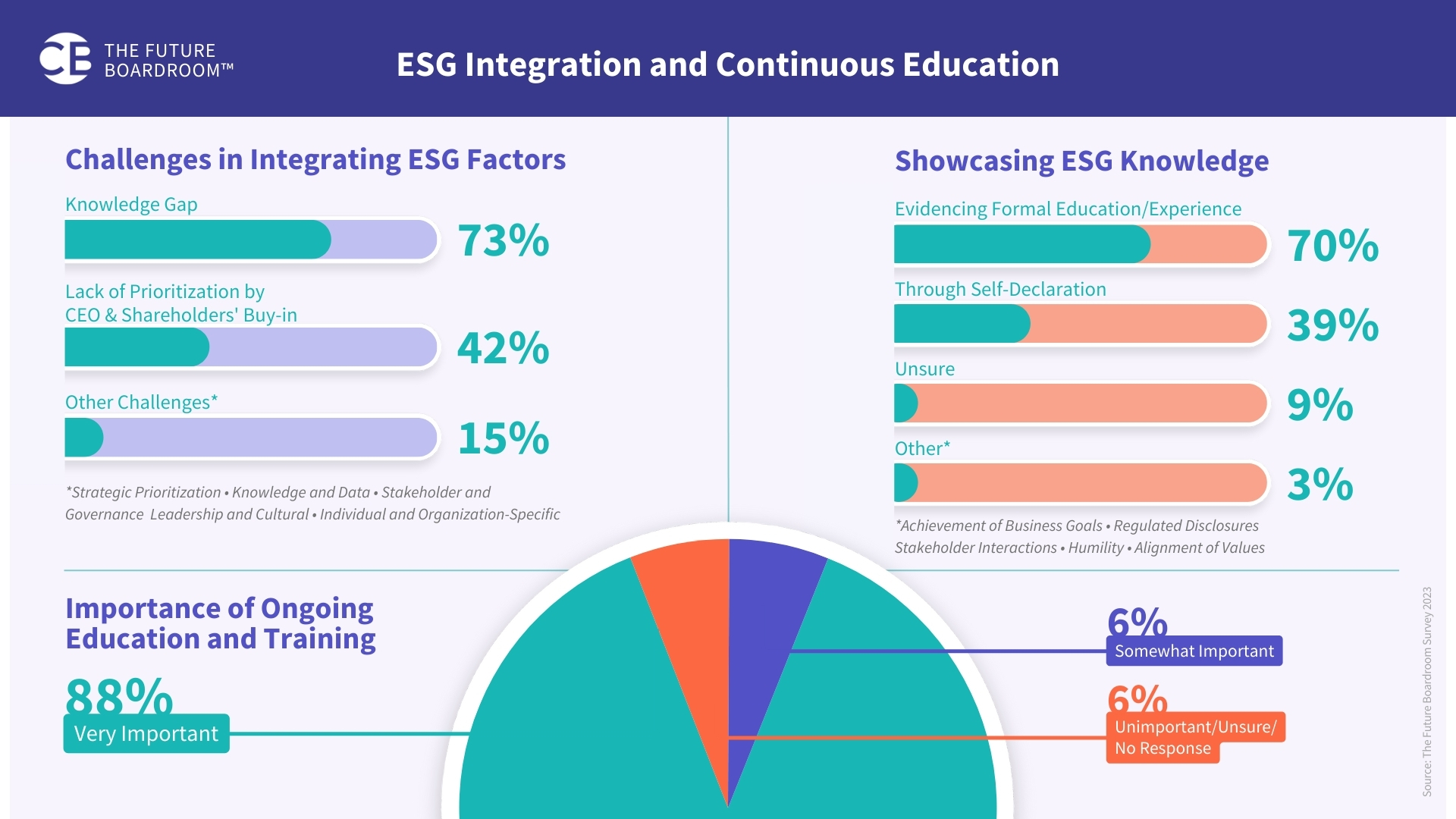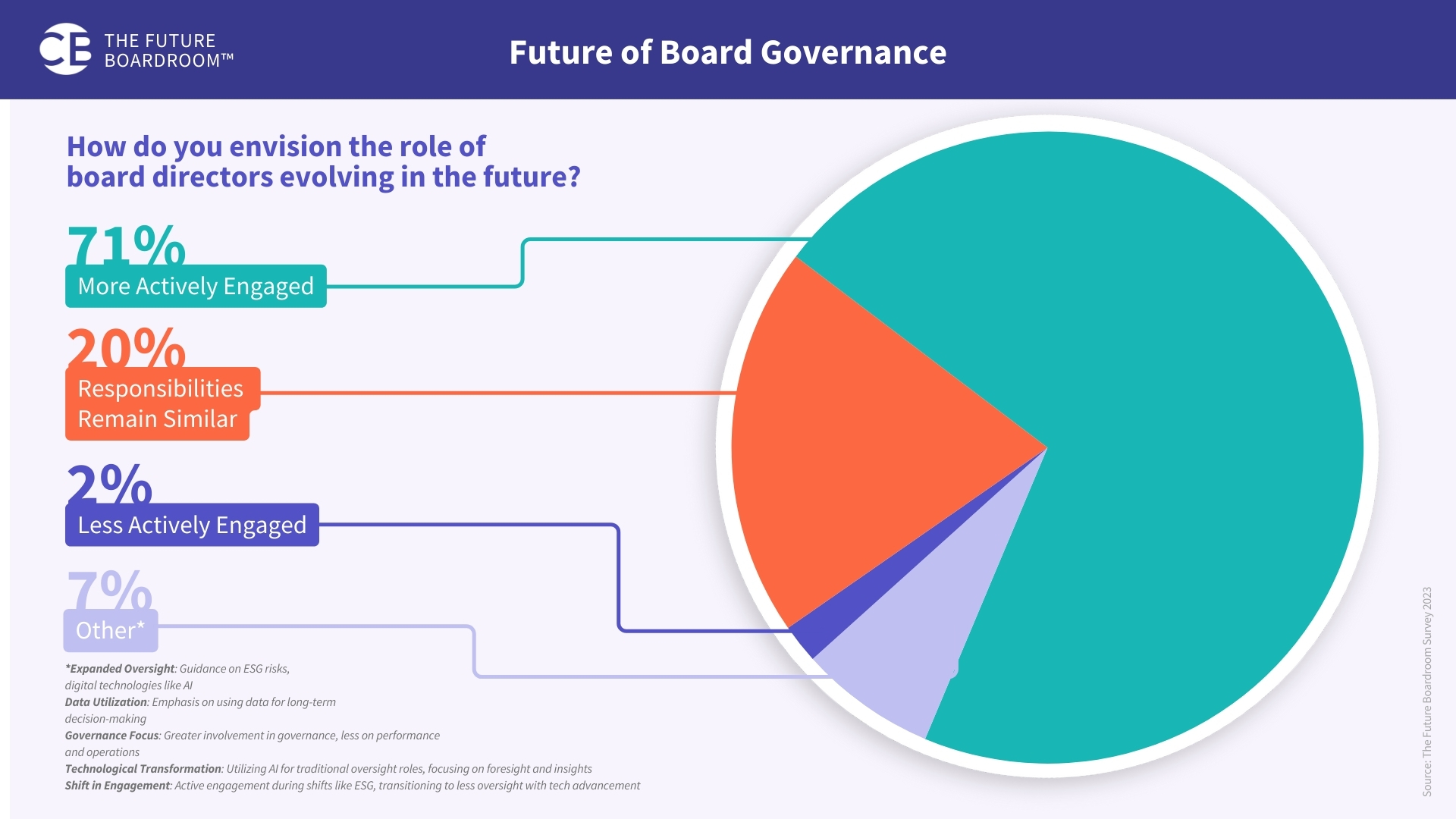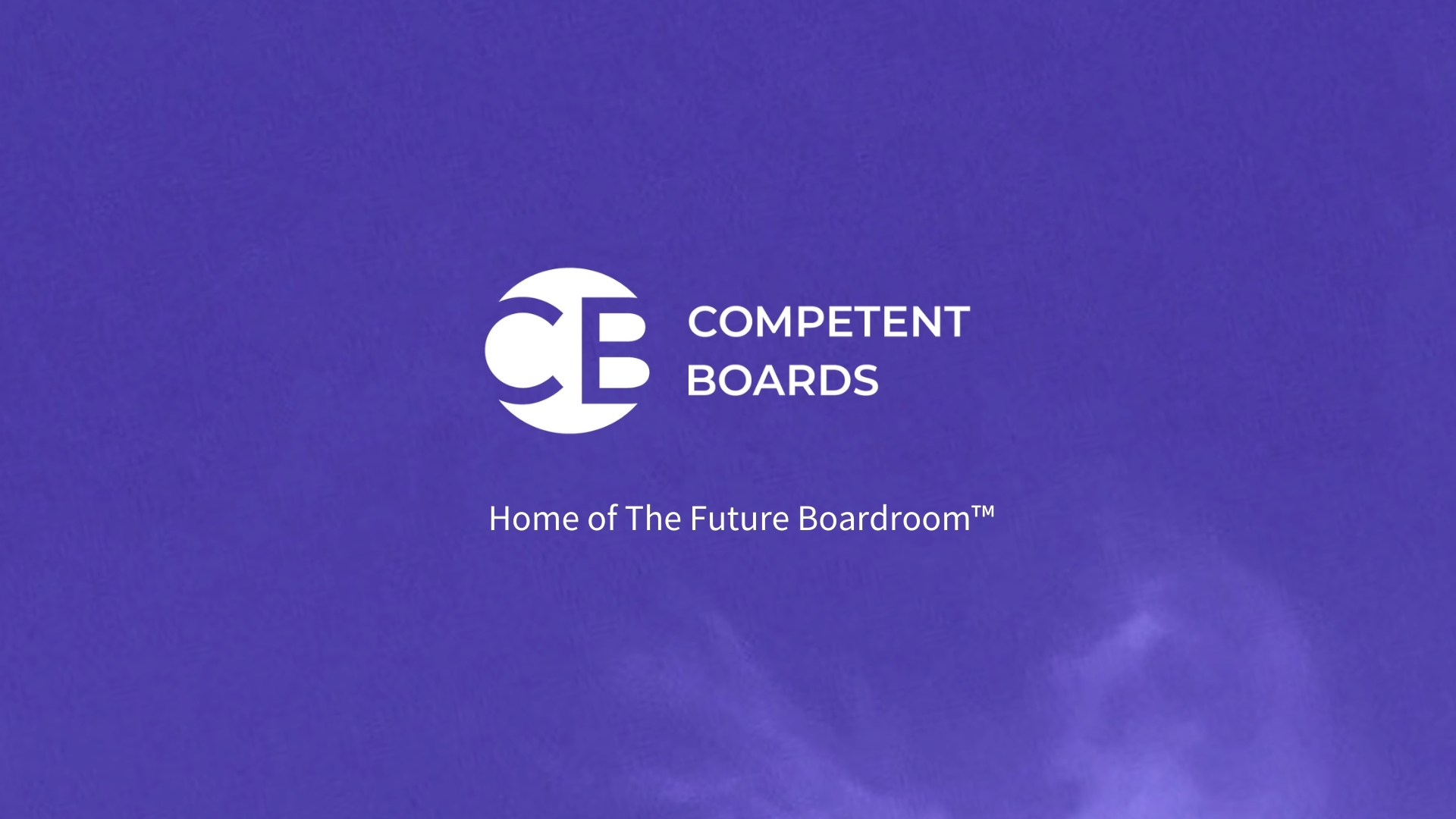
TORONTO, SEPTEMBER 18, 2023 – The landscape of board governance is evolving rapidly, and with it, the competencies expected of board directors. Our analysis of the results from the recently concluded Competent Boards Future Boardroom Survey delves into the changing expectations and challenges of the future boardroom, offering a snapshot of the skills that are phasing out, those that will take center stage, and the critical importance of continuous education in navigating this transformation.
“Our study confirms that ESG and sustainability are becoming central to boardrooms across the globe, and the existing knowledge gap highlights the necessity for continuous education,” said Helle Bank Jorgensen, Chief Executive Officer of Competent Boards.” The findings emphasize the vital role of ongoing education in enabling boards to actively guide their organizations’ futures by choice, not by chance.”
The survey collected responses from 66 leaders, primarily in banking, finance, insurance, and other sectors. Geographically, the respondents hailed mainly from North America but included representation from Europe, South Africa, Asia, Latin America, and Oceania. The participants spanned age categories from 35 to over 65, with a balanced gender distribution and the majority holding advanced degrees.
Key findings:
- The Changing Face of Boardroom Competencies
Traditional competencies like financial acumen, specific education or sector experience, and C-suite legacy experience are making way for ESG and sustainability acumen, digital and technological proficiency, and future-oriented & values-driven leadership.
Traits transitioning out include narrow legal skills, traditional administration skills, hierarchical leadership, lack of diversity, ethical misconduct, short-term orientation, and traditional networking skills.
Additional traits transitioning in include inclusive leadership, strategic thinking, adaptability, talent insight, risk assessment, global geopolitical acumen, regulatory understanding, and generalist skills.
- The Crucial Balance of Skills
Interpersonal skills were emphasized by 64% of respondents, while technological proficiency was marked by 26% and traditional competencies by 5%.
- Navigating Evolving Governance Challenges
Challenges in integrating ESG factors were also presented, with 73% saying there is a knowledge gap and 42% saying there is a lack of prioritization by CEOs and shareholders. Various modes of showcasing ESG expertise (formal education, experience, or self-declaration) reflect a sophisticated and nuanced approach to board governance.
- Continuous Education – The Need of the Hour
A staggering 88% consensus underscores the importance of ongoing education, especially regarding sustainability trends.
- Future of Board Governance
The vision for board directors includes more active engagement (71%), an emphasis on using data for long-term decision-making, and a transition to keeping up with technological advancement.
“The Future Boardroom initiative is more than just understanding the changes; it’s about actively defining how corporate governance will look in the coming years. Our research provides insights into the skills and expertise needed in this rapidly changing environment,” said Bank Jorgensen.
The Changing Face of Boardroom Competencies
Back To News & Views